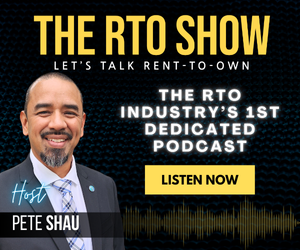
The APRO Code of Ethics was created alongside the association in 1980, written by the first APRO members to establish a set of guidelines consistent with what they felt should be ingrained in the industry’s values, priorities, and ethical standards.
Today, this 14-point Code of Ethics endures as the defining guidance that APRO members agree upon in order to maintain a healthy business environment for the rent-to-own industry. As the Code of Ethics continues to be not just relevant but essential to our association and our membership four decades later, we offer this series of newsletter articles to recap and reconfirm each of these ethical standards with you.
CODE III
Members shall provide high-quality rental goods and services to their customers and to the community in which they live.
Providing high-quality rental goods and services to our customers and communities is essential. It’s not only an ethical business practice generally, but also specifically critical to the rental-purchase industry, because the return-on-investment that rental products generate for dealers is a key component in the rent-to-own business model.
Rental dealers have a greater investment in ensuring they offer high-quality products than the average retailer, because dealers are ultimately responsible for repairing or replacing products throughout the life of the rental agreement.
A product is rented about four times on average before it goes to term and ownership shifts from the rental dealer to the customer. Typically, the manufacturer warranty will expire long before a product goes to term, so the warranty becomes the dealer’s responsibility. The rental dealer is seeking ‘book value’ – how much revenue was generated by the first customer, and conversely, how much it will cost to continue generating revenue. Dealers must find the best ways to leverage the value of their products – adding value and sustaining cost-effectiveness throughout the life of their rental agreements.










